Winston-Salem, North Carolina Blood Testing Facilities
 Represents a LabCorp blood testing facility
Represents a LabCorp blood testing facility Represents a Quest Diagnostics blood testing facility
Represents a Quest Diagnostics blood testing facility

Nearby Labcorp Blood Testing facilities:
- Labcorp Center Distance: 2 m, 2932 Lyndhurst Ave, Winston Salem, Forsyth County, NC, 27103
- Labcorp Center Distance: 4 m, 3333 Brookview Hills Ste 103, Winston Salem, Forsyth County, NC, 27103
- Labcorp Center Distance: 9 m, 445 Pineview Dr Ste 210, Kernersville, Forsyth County, NC, 27284
- Labcorp Center Distance: 15 m, 3610 Peters Court Suite 200, High Point, Guilford County, NC, 27265
- Labcorp Center Distance: 16 m, 137 Mt. Calvary Road Suite B, Thomasville, Davidson County, NC, 27360
- Labcorp Center Distance: 25 m, 1126 N Church St Ste 104, Greensboro, Guilford County, NC, 27401
- Labcorp Center Distance: 31 m, 601 Mocksville Ave Ste B, Salisbury, Rowan County, NC, 28144
- Labcorp Center Distance: 33 m, 752 S Andy Griffith Pkwy, Mount Airy, Surry County, NC, 27030
- Labcorp Center Distance: 35 m, 942 Johnson Ridge Road Ste U, Elkin, Surry County, NC, 28621
- Labcorp Center Distance: 36 m, 520 Maple Ave Ste A, Reidsville, Rockingham County, NC, 27320
- Labcorp Center Distance: 37 m, 18877 Jeb Stuart Highway, Stuart, Patrick County, VA, 24171
- Labcorp Center Distance: 40 m, 1710A Davie Ave, Statesville, Iredell County, NC, 28677
- Labcorp Center Distance: 41 m, 1041 Kirkpatrick Rd, Burlington, Alamance County, NC, 27215
- Labcorp Center Distance: 43 m, 855 Heather Rd, Burlington, Alamance County, NC, 27215
- Labcorp Center Distance: 48 m, 478 Copperfield Blvd, Concord, Cabarrus County, NC, 28025
- Labcorp Center Distance: 50 m, 134 Medical Park Rd Ste 102, Mooresville, Iredell County, NC, 28117
- Labcorp Center Distance: 51 m, 1902 West Park Drive, North Wilkesboro, Wilkes County, NC, 28659
- Labcorp Center Distance: 54 m, 3940 Arrowhead Blvd Ste 240, Mebane, Alamance County, NC, 27302
- Labcorp Center Distance: 56 m, 174 Executive Drive Ste C, Danville, Other, VA, 24541
- Labcorp Center Distance: 57 m, 16525 Holly Crest Lane 250, Huntersville, Mecklenburg County, NC, 28078
- Labcorp Center Distance: 58 m, 10030 Gilead Road Ste 100-B, Huntersville, Mecklenburg County, NC, 28078
- Labcorp Center Distance: 59 m, 10320 Mallard Creek Road 180, Charlotte, Mecklenburg County, NC, 28262
- Labcorp Center Distance: 61 m, 8401 Medical Plaza Dr. Ste 140, Charlotte, Mecklenburg County, NC, 28262
- Labcorp Center Distance: 64 m, 1949 Tate Blvd Se, Hickory, Catawba County, NC, 28602
- Labcorp Center Distance: 66 m, 100 Timberhill Place Suite 122, Chapel Hill, Orange County, NC, 27514
- Labcorp Center Distance: 69 m, 1718 East 4Th Street Ste 302, Charlotte, Mecklenburg County, NC, 28204
- Labcorp Center Distance: 70 m, 300 Billingsley Rd Ste 200A, Charlotte, Mecklenburg County, NC, 28211
- Labcorp Center Distance: 72 m, 107 Weeks Drive, Roxboro, Person County, NC, 27573
- Labcorp Center Distance: 73 m, 1133 Carthage Street Unit De, Sanford, Lee County, NC, 27330
- Labcorp Center Distance: 75 m, 8 Regional Circle, Pinehurst, Moore County, NC, 28374
- Labcorp Center Distance: 76 m, 640 Summit Crossing Pl Ste 206, Gastonia, Gaston County, NC, 28054
- Labcorp Center Distance: 77 m, 10512 Park Rd Ste 107, Charlotte, Mecklenburg County, NC, 28210
- Labcorp Center Distance: 78 m, 237 Longvue Drive Ste C, Boone, Watauga County, NC, 28607
- Labcorp Center Distance: 79 m, 15830 Ballantyne Med Pl Ste140, Charlotte, Mecklenburg County, NC, 28277
- Labcorp Center Distance: 80 m, 3601 Davis Drive, Morrisville, Wake County, NC, 27560
- Labcorp Center Distance: 83 m, 400 East Burwell St, Salem, Other, VA, 24153
- Labcorp Center Distance: 85 m, 104 Bass Lake Road Suite 100, Holly Springs, Wake County, NC, 27540
- Labcorp Center Distance: 86 m, 1110 Se Cary Pkwy Ste 205, Cary, Wake County, NC, 27518
- Labcorp Center Distance: 88 m, 3200 Blue Ridge Road Ste 200, Raleigh, Wake County, NC, 27607
- Labcorp Center Distance: 89 m, 2460 India Hook Rd Ste 101, Rock Hill, York County, SC, 29732
- Labcorp Center Distance: 91 m, 6729 Falls Of Neuse Rd Ste 102, Raleigh, Wake County, NC, 27615
- Labcorp Center Distance: 92 m, 11001 Durant Road Ste 106, Raleigh, Wake County, NC, 27614
- Labcorp Center Distance: 93 m, 100 South 10Th Street, Lillington, Harnett County, NC, 27546
- Labcorp Center Distance: 95 m, 10831 Forest Pines Dr Ste 108, Raleigh, Wake County, NC, 27614
- Labcorp Center Distance: 99 m, 150 Courthouse Rd Ste 102, Princeton, Mercer County, WV, 24740
Nearby Quest Blood Testing facilities:
- Quest Center Distance: 3 m, 200 Charlois Blvd, Winston Salem, Forsyth County, NC, 27103-1536
- Quest Center Distance: 25 m, 1002 N Church St, Greensboro, Guilford County, NC, 27401-1448
- Quest Center Distance: 31 m, 611 Mocksville Ave, Salisbury, Rowan County, NC, 28144-2738
- Quest Center Distance: 40 m, 509 Brookdale Dr, Statesville, Iredell County, NC, 28677-4107
- Quest Center Distance: 64 m, 1781 Tate Blvd South East, Hickory, Catawba County, NC, 28602-4218
- Quest Center Distance: 70 m, 3541 Randolph Rd Ste 110, Charlotte, Mecklenburg County, NC, 28211-1082
- Quest Center Distance: 72 m, 4655 Cleburne Blvd, Dublin, Pulaski County, VA, 24084-4412
- Quest Center Distance: 73 m, 202 8Th St, Radford, Other, VA, 24141-2426
- Quest Center Distance: 77 m, 11111 Carmel Commons Blvd, Charlotte, Mecklenburg County, NC, 28226-4075
- Quest Center Distance: 81 m, 1932 Braeburn Drive, Salem, Other, VA, 24153-7302
- Quest Center Distance: 85 m, 103 Baines Court, Cary, Wake County, NC, 27511-6646
- Quest Center Distance: 89 m, 1014 Procure St., Fuquay Varina, Wake County, NC, 27526-2620
- Quest Center Distance: 95 m, 3031 New Bern Ave, Raleigh, Wake County, NC, 27610-2989
North Carolina Hormone Replacement Therapy Services
Human Growth Hormone Injections in North Carolina
Did you know that Hormone Imbalance is one of the strongest pressures which contribute to premature aging? As we grow older, HGH Levels start to decline, and we start to age more quickly as a direct result. Many men and women over the age of 30 suffer from Age-Related Growth Hormone Deficiency, a condition which exacerbates the aging process, severely damaging both health and well-being
The Conscious Evolution Institute offers Physician-Monitored HGH Injections for the treatment of Growth Hormone Decline. We can get you the help you need to restore your hormone balance and boost your health. We can help you buy the HGH you need and even ship it to your doorstep.
Sermorelin Acetate Therapy Services in North Carolina
We also offer Sermorelin Treatments as an alternative to HGH Shots. Both are highly effective at restoring natural and youthful hormone balance, but Sermorelin does so by helping your body make more HGH on its own, rather than supplementing the body's diminishing supply.
Many people prefer Sermorelin Acetate because it's cheaper than Human Growth Hormone Replacement Therapy, but others feel that the results of HGH Injections are more noticeable. One of our clinical physicians will help you make the best decision for your health and your wallet.
North Carolina Low-T Treatments
Along with HGH Restoration, we also provide Testosterone Replacement Therapy for the treatment of Erectile Dysfunction and Testosterone Deficiency. Many men turn to pills as a means to restore their sexual potency, but these pills may simply be masking underlying problems that are eating away at your health.
Testosterone is a vitally important hormone for male health, and ED Pills do nothing to restore hormone balance, they simply alter your blood flow to foster easier sexual activity. Men with Testosterone Deficiency are more prone to Age-Related Disorders such as diabetes and obesity, and they are at significantly increased risk of other metabolism disorders, as well as cardiovascular disease, heart attack and stroke.
Women can also benefit from Testosterone Replacement as a means to mitigate the effects of menopause, strengthen the bones, and restore sex drive.
The HCG Diet for North Carolina Residents
Are you overweight? Do you have chronic health issues that are exacerbated by obesity? The Conscious Evolution Institute can help you solve your weight problems with our highly effective HCG Diet. HCG is short for Human Chorionic Gonadotropin, and this natural biological hormone has been shown to be an effective weight loss aid.
HCG Injections, when combined with a restricted diet, encourage the body to burn pesky reserves of adipose fat, while also helping sustain energy levels, preventing the fatigue normally associated with accelerated weight loss. HCG has the special ability to mask feelings of hunger, helping you avoid the temptation of unhealthy foods, helping you lose weight quickly as well as responsibly.
Largest Metropolitan Areas of North Carolina
Charlotte
Charlotte is the biggest city and metro area in the state of North Carolina. Charlotte also goes by the nickname of The Queen City, as it was named after King George III wife, Queen Charlotte. Charlotte is highly valuable to the American economy primarily because of its vital importance as a banking center. The only city in the United States that houses financial institutions with a greater net worth is New York City. The city is also home to a number of Fortune 500 companies.
Charlotte also has a strong professional sports presence, bulwarked by the Charlotte Panthers and the Charlotte Bobcats. The city is also home to a number of colleges, including the University of Charlotte and UNC-Charlotte.
Raleigh
Raleigh, North Carolina is the second largest city in the state, as well as its capital. Raleigh also goes by the nickname of The City of Oaks, because of its multitude of Oak Trees which are planted all throughout the city. Like Charlotte, Raleigh has a strong financial presence, but it is most well-known for its medical and high-tech research.
The city of Raleigh is one of the cities on Tobacco Road, the region of North Carolina with the most competitive college basketball in the United States. Raleigh is the home of NC State University. Raleigh is also home to the NHL team, the Carolina Hurricanes.
Greensboro
Greensboro is the central city of the Piedmont Triad region of North Carolina, and is the third most populated city in the state. Greensboro has a surprisingly active arts community, with an emphasis on theater, contemporary, and classical music. The most prestigious sports competition held in the Greensboro area is the FedEx Cup.
There are a number of small colleges and universities in Greensboro, a couple of the most notable of which are the Elon Law School and UNC-Greensboro. Greensboro has been historically known for its strong textile industry, as well as being a center of tobacco processing and distribution.
Winston-Salem
Winston-Salem is the fourth largest metropolitan population in the state, and is another city in the Piedmont Triad area, along with Greensboro. Winston-Salem is probably most well-known as a center of the tobacco industry, and the home of R.J. Reynolds, the maker of Camel Cigarettes.
Like Greensboro, Winston-Salem also has an active arts and cultural community, with an emphasis on theater and fine arts. The most well-recognized university in the Winston-Salem area is Wake Forest University. The largest industries in Winston-Salem are Health Care, Fabrication, and Retail.
Durham
Durham is most famous for being the home of Duke University, and Chapel Hill is the home of the University of North Carolina. The two universities are only ten miles apart, and are the foundation of Tobacco Road, as well as representing the biggest basketball rivalry in the United States. Durham has a strong contemporary music scene, and has contributed a number of bands and artists to the national landscape, including The Mountain Goats and the Carolina Chocolate Drops.
Duke University and its hospitals are the biggest employers of Durham, but there is also a strong high-tech presence, the largest representatives of which are GlaxoSmithKline and IBM. Forbes' has listed Durham as one of the best cities in the United States to start a career.
All About Winston Salem, North Carolina Geographic Area


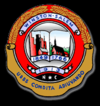


Winston-Salem is a city in the U.S. state of North Carolina, with a 2010 population of 229,617. Winston-Salem is the county seat and largest city of Forsyth County and the fourth-largest city in the state (though a 2011 estimate of Census Bureau estimate of 232,385 makes Winston-Salem fifth largest).
Winston-Salem is the second largest municipality in the Piedmont Triad region and is home to the tallest office building in the region, 100 North Main Street, formerly the Wachovia Building and now known locally as the Wells Fargo Center. Winston-Salem is called the "Twin City" for its dual heritage and "City of the Arts and Innovation" for its dedication to fine arts and theater and technological research. "Camel City" is a reference to the city's historic involvement in the tobacco industry related to locally-based R. J. Reynolds Tobacco Company's popular Camel cigarettes. Many locals use "Winston" in informal speech.
In 2003, the previous Greensboro - Winston-Salem - High Point metropolitan statistical area (MSA) was re-defined by the U.S. Office of Management and Budget, resulting in the formation of the Greensboro-High Point MSA and the Winston-Salem MSA. The official 2010 Census population for the Winston-Salem, North Carolina MSA was 477,717. The Greensboro - Winston-Salem - High Point combined statistical area (CSA), popularly referred to as the Piedmont Triad, had a population of 1,589,200 in 2010.
The Old Salem district (1766) and related Historic Bethabara (1753) and Bethania (1759) sites are the city's oldest historical attractions. Also of historical interest is Reynolda Village (which includes Reynolda Gardens and the Reynolda House Museum of American Art). Other sites of interest include the Horne Creek Historic Farm, Tanglewood Park, the SciWorks educational facility, and SECCA, the Southeastern Center for Contemporary Art. The city's major sports and entertainment venues are organized in a group known as the Winston-Salem Entertainment-Sports Complex.
The Winston-Salem metropolitan area (MSA) has an estimated population of 468,124 according to the 2008 estimate by the U.S. Census Bureau. As of 2008, the combined statistical area (CSA) of Greensboro/Winston-Salem/High Point, the Piedmont Triad, has a population of 1,603,101, making it the 30th-largest metropolitan area in the USA.
The origin of the town of Salem dates to January 1753, when Bishop August Gottlieb Spangenberg, on behalf of the Moravian Church, selected a settlement site in the three forks of Muddy Creek. He called this area "die Wachau" (Latin form: Wachovia) named after the ancestral estate of Count Nicolaus Ludwig von Zinzendorf. The land, just short of 99,000 acres (400 km2), was subsequently purchased from John Carteret, 2nd Earl Granville.
On November 17, 1753, the first settlers arrived at what would later become the town of Bethabara. This town, despite its rapid growth, was not designed to be the primary settlement on the tract. Some residents expanded to a nearby settlement called Bethania in 1759. Finally, lots were drawn to select among suitable sites for the location of a new town.
The town established on the chosen site was given the name of Salem (from the Hebrew word Shalom for "peace") chosen for it by the Moravians' late patron, Count Zinzendorf. On 6 January 1766, the first tree was felled for the building of Salem. Salem was a typical Moravian settlement congregation with the public buildings of the congregation grouped around a central square, today Salem Square. These included the church, a Brethren's House and a Sisters' House for the unmarried members of the Congregation, which owned all the property in town. For many years only members of the Moravian Church were permitted to live in the settlement. This practice had ended by the American Civil War. Many of the original buildings in the settlement have been restored or rebuilt and are now part of Old Salem Museums & Gardens. Salem was incorporated as a town in 1854. Salem Square and "God's Acre", the Moravian Graveyard, since 1772 are the site each Easter morning of the world-famous Moravian sunrise service. This service, sponsored by all the Moravian church parishes in the City, attracts thousands of worshippers each year and has earned the name of "the Easter City" for Winston-Salem.
In 1849, the Salem congregation sold land north of Salem to the newly formed Forsyth County for a county seat. The new town was called "the county town" or Salem until 1852 when it was named Winston for a local hero of the Revolutionary War, Joseph Winston. For its first two decades, Winston was a sleepy county town. In 1872, work began to connect the town to the North Carolina Railroad. That same year, Thomas Jethro Brown of Davie County rented a former livery stable and established the first tobacco warehouse in Winston. That same year, Pleasant Henderson Hanes, also of Davie, built his first tobacco factory a few feet from Brown's warehouse. In 1875, Richard Joshua Reynolds, of Patrick County, Virginia, built his first tobacco factory a few hundred feet from Hanes' factory. By the 1880s, there were almost 40 tobacco factories in the town of Winston. Hanes and Reynolds would compete fiercely for the next 25 years, each absorbing a number of the smaller manufacturers, until Hanes sold out to Reynolds in 1900 to begin a second career in textiles.
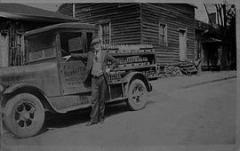
In the 1880s, the US Post Office began referring to the two towns as Winston-Salem. In 1899, after nearly a decade of contention, the United States Post Office Department established the Winston-Salem post office in Winston, with the former Salem office serving as a branch. After a referendum the towns were officially incorporated as "Winston-Salem" in 1913. The USPS Address Information System (AIS) does not recognize the hyphen.
The Reynolds family, namesake of the R. J. Reynolds Tobacco Company, played a large role in the history and public life of Winston-Salem. By the 1940s, 60% of Winston-Salem workers worked either for Reynolds or in the Hanes textile factories. The Reynolds company imported so much French cigarette paper and Turkish tobacco for Camel cigarettes that Winston-Salem was designated by the United States federal government as an official port of entry for the United States, despite the city being 200 miles (320 km) inland. Winston-Salem was the eighth-largest port of entry in the United States by 1916.
In 1917, the company bought 84 acres (340,000 m2) of property in Winston-Salem and built 180 houses that it sold at cost to workers, to form a development called "Reynoldstown." By the time R.J. Reynolds died in 1918, his company owned 121 buildings in Winston-Salem.
In 1929, the Reynolds Building was completed in Winston-Salem. Designed by William F. Lamb from the architectural firm Shreve, Lamb and Harmon, the Reynolds Building is a 314 ft (96m) skyscraper that has 21 floors. When completed as the headquarters of R.J. Reynolds Tobacco Company, it was the tallest building in the United States south of Baltimore, Maryland, and it was named the best building of the year by the American Institute of Architects. The building is well known for being the predecessor and prototype for the much larger Empire State Building that was built in 1931 in New York City. Every year the staff of the Empire State Building sends a Father's Day card to the staff at the Reynolds Building in Winston-Salem to pay homage to its role as predecessor to the Empire State Building.
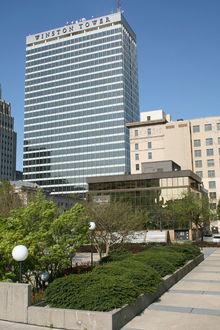
Winston-Salem is in northwest piedmont area of North Carolina at 36 °6 a²10 a³N 80 °15 a²38 a³W / 36.10278 °N 80.26056 °W / 36.10278; -80.26056 (36.102764, -80.260491).
According to the United States Census Bureau, the city has a total area of 132.4 square miles (343 km2), of which, 129.6 square miles (336 km2) of it is land and 2.8 square miles (7.3 km2) of it (0.81%) is water.
The city of Winston-Salem has a humid subtropical climate characterized by cool, sometimes moderately cold winters, and hot, humid summers. The average high temperatures range from 51 °F in the winter to around 89 °F in the summer. The average low temperatures range from 28 °F in the winter to around 67 °F in the summer.
As of the census of 2000, there are 185,776 people, with a total urban population of 299,290, 76,247 households, and 46,205 families residing in the city. The population density is 1,706.7 people per square mile (659.0/km ²). There are 82,593 housing units at an average density of 758.8 per square mile (293.0/km ²). The racial composition of the city was: 55.6% White, 37.10% Black or African American, 8.64% Hispanic or Latino American, 1.13% Asian American, 0.31% Native American, 0.04% Native Hawaiian or Other Pacific Islander, 4.29% some other race, and 1.56% two or more races. Non-Hispanic Whites were 47.1% of the population in 2010, down from 59% in 1990.
There are 76,247 households out of which 28.0% have children under the age of 18 living with them, 40.2% are married couples living together, 16.6% have a female householder with no husband present, and 39.4% are non-families. 33.4% of all households are made up of individuals and 10.7% have someone living alone who is 65 years of age or older. The average household size is 2.32 and the average family size is 2.95.
In the city the population is spread out with 23.3% under the age of 18, 11.7% from 18 to 24, 30.4% from 25 to 44, 20.9% from 45 to 64, and 13.7% who are 65 years of age or older. The median age is 35 years. For every 100 females there are 88.7 males. For every 100 females age 18 and over, there are 84.2 males.
The median income for a household in the city is $39,589, and the median income for a family is $46,595. Males have a median income of $32,398 versus $25,335 for females. The per capita income for the city is $39,468. 11.2% of the population and 4.3% of families are below the poverty line. Out of the total population, 8.3% of those under the age of 18 and 7.1% of those 65 and older are living below the poverty line.
It is the location of the corporate headquarters of BB&T (Branch Banking and Trust Company), HanesBrands, Inc., Krispy Kreme Doughnuts, Inc., Lowes Foods Stores, ISP Sports, Reynolds American (parent of R. J. Reynolds Tobacco Company), Reynolda Manufacturing Solutions, Southern Community Bank, K&W Cafeterias, and TW Garner Food Company (makers of Texas Pete). Wachovia Corporation was based in Winston-Salem until it merged with First Union Corporation in September 2001; the corporate headquarters of the combined company was located in Charlotte, until it was purchased by Wells Fargo in December 2008. PepsiCo has its Customer Service Center located in Winston-Salem.
Although traditionally associated with the textile and tobacco industries, Winston-Salem is transforming itself to be a leader in the nanotech, high-tech and bio-tech fields. Medical research is a fast-growing local industry, and Wake Forest University Baptist Medical Center is the largest employer in Winston-Salem. Blue Rhino, the nation's largest propane exchange company and a division of Ferrellgas, is also headquartered in Winston-Salem. In December 2004, the city landed a deal with Dell, Inc. providing millions of dollars in incentives to build a computer assembly plant nearby in southeastern Forsyth County. However Dell closed its Winston-Salem facility in January 2010 due to the poor economy. A portion of downtown Winston-Salem has been designated as the Piedmont Triad Research Park for biomedical and information technology research and development. Currently, the research park is undergoing an expansion, with hopes of jumpstarting the city's economy.
According to the Winston-Salem Business Inc.'s 2010-2011 data report on major employers, the ten largest employers in the city are:
According to the Winston-Salem Business Inc.'s 2010-2011 data report on major industries, the major industries in the city are by percentage:
Winston-Salem/Forsyth County Schools has most of its schools inside Winston-Salem. WS/FC Schools include 51 elementary schools, 25 middle schools and 13 high schools.
Private and parochial schools also make up a significant portion of Winston-Salem's educational establishment.
Winston-Salem also has a number of colleges and universities, including:
Museums are an important portion of Winston-Salem's heritage. Most famous of Winston-Salem's museums is Old Salem, a living history museum centered on the main Moravian settlement founded in 1766. Along with the original 18th century buildings, Old Salem is also home to the Museum of Early Southern Decorative Arts (MESDA), a gallery of 18th and 19th century furniture, ceramics, and textiles.
The Reynolda House Museum of American Art (built by the founder of the R. J. Reynolds Tobacco Company and now affiliated with Wake Forest University) is another of Winston-Salem's premier museums.
The Southeastern Center for Contemporary Art (SECCA) is a nationally known art center.
The Wake Forest University Museum of Anthropology is an anthropological museum, maintained by Wake Forest University, that has many artifacts and other pieces of history.
The city also offers places oriented for children.
SciWorks is an interactive museum for children, teaching basics in all areas of science, and offering experiments and educational tours.
The Children's Museum of Winston-Salem offers engaging exhibits and programs designed to develop creative thinking, strengthen language skills, and encourage curiosity for children ages birth to eight.
Winston-Salem is often referred to[by whom?] as the "City of the Arts", partly because of it created the first arts council in the United States, founded in 1949, and because of the local art schools and attractions. These include the University of North Carolina School of the Arts, Twin City Stage, Winston-Salem Theatre Alliance, the Piedmont Opera Theater, the Winston-Salem Symphony, the Stevens Center for the Performing Arts, and the Sawtooth Center for Visual Arts.
There are many galleries and workshops in the city's art district centered at Sixth and Trade streets.
The city plays host to the National Black Theatre Festival, the RiverRun International Film Festival and the Reynolda Film Festival.
Winston-Salem is also the home of the Art-o-mat and houses nine of them throughout the city.
The city is also home to Carolina Music Ways, a grassroots arts organization focussing on the area's diverse, interconnected music traditions, including bluegrass, blues, jazz, gospel, old-time stringband, and Moravian music.
Once a year the city is also the home of the Heavy Rebel Weekender music festival, featuring over 70 bands, primarily rockabilly, punk and honky tonk, over three days.
Winston-Salem is also home to one of the largest "Indie" music and art scenes in the state. The Werehouse, a local hang-out, artists' residence, and theatre is the center of this growing lifestyle and artistic genre.
Reynolda Gardens is a 4-acre (16,000 m2) formal garden set within a larger woodland site, originally part of the R. J. Reynolds country estate.
Winston-Salem provides a number of athletic attractions.
The Dash is a Class A Minor-League baseball team currently affiliated with the Chicago White Sox. After 52 years at historic Ernie Shore Field, the Dash now plays its home games at the new BB&T Ballpark, which opened in 2010. Previous names for the team include the Winston-Salem Cardinals, Twins, Red Sox, Spirits and, most recently, the Winston-Salem Warthogs. Its players have included Vinegar Bend Mizell, Earl Weaver, Bobby Tiefenauer, Harvey Haddix, Stu Miller, Ray Jablonski, Don Blasingame, Gene Oliver, Rico Petrocelli, Jim Lonborg, George Scott, Sparky Lyle, Bill "Spaceman" Lee, Dwight Evans, Cecil Cooper, Butch Hobson, Wade Boggs, Carlos Lee, Joe Crede, Jon Garland, and Aaron Rowand, all of whom have played extensively at the major league level.
Wake Forest University is an original member of the prestigious Atlantic Coast Conference (ACC). Wake Forest's football team plays its games at BB&T Field (formerly Groves Stadium), which seats 32,500. Also Wake Forest's soccer program made four consecutive final four appearances (2006 ae2009) and were NCAA champions in 2007. Their women's field hockey team won three consecutive national championships between 2002 and 2004.
The Lawrence Joel Veterans' Memorial Coliseum is home to Wake Forest and some Winston-Salem State basketball games.
NASCAR Dodge Weekly Series racing takes place from March until August at city-owned Bowman Gray Stadium. It is NASCARs longest running racing series, dating to the 1940s. In the fall, the stadium is used for Winston-Salem State Rams football games.
Winston-Salem offers a variety of community and children's sports programs and has an active YMCA presence. Several community pools are available for membership.
Winston-Salem hosts an ATP tennis tour round every year.
Winston-Salem is home to Hanes Mall, one of the largest shopping malls in North Carolina. The area surrounding the mall along Stratford Road and Hanes Mall Boulevard has become the city's largest shopping district. Other shopping areas exist in the city, including Thruway Shopping Center, Hanes Point Shopping Center, Hanes Commons, Pavilions, Stone's Throw Plaza, Silas Creek Crossing, and the Marketplace Mall.
The Winston-Salem Transit Authority (WSTA) has the responsibility of providing public transportation. It took over from the Safe Bus Company, founded in the 1920s as the largest black owned transportation company in the United States, in 1972. Operating out of the Clark Campbell Transportation Center at 100 West Fifth Street, WSTA has 26 daily routes, which run between 5:30am and 12:00 midnight Monday through Friday and from 6:30am through 6:30pm on Saturday. WSTA makes nearly 3 million passenger trips annually. In February 2010 WSTA added 10 diesel-electric buses to its fleet.
The Piedmont Authority for Regional Transportation (PART) operates a daily schedule from the Campbell center connecting Winston-Salem to Boone, Mt. Airy and Greensboro, where other systems provide in-state routes to points east.
Greyhound lines also provides interstate transportation from the Campbell Center.
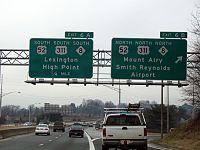
US 52 (which runs concurrent with NC 8) is the predominant north-south freeway through Winston-Salem; it passes near the heart of downtown. Business 40 is the main east-west freeway through downtown Winston-Salem. In 1993 a bypass loop of I-40 was built. US 311, also a freeway, links Winston-Salem to High Point (southeast) and follows I-40 and US 52 through the Winston-Salem business district. US 421, which shares Business 40 through downtown, splits in the western part of the city onto its own freeway west (signed north) toward Wilkesboro, North Carolina and Boone, North Carolina.
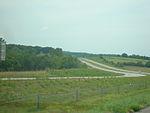
The Winston Salem Northern Beltway is a proposed freeway that will loop around the city to the north, providing a route for the Future I-74 on the eastern section and the Future Auxiliary Route I-274 on the western section. The NCDOT plans for this project to begin after 2010.
By 2011, US 52 south of I-40 will be signed as Spur Route I-285. The Winston-Salem Department of Transportation also plans for the US 311 freeway to be extended north along the east side of the city to Business I-40 by 2030, according to the Long Range Plan.
Major thoroughfares in Winston-Salem include NC 67 (Silas Creek Parkway & Reynolda Road), NC 150 (Peters Creek Parkway), US 158 (Stratford Road), University Parkway, Martin Luther King Jr. Drive, North Point Boulevard, and Hanes Mall Boulevard.
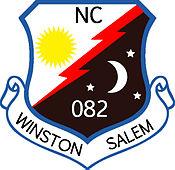
Winston-Salem is served by Greensboro's Piedmont Triad International Airport. The airport also serves much of the surrounding Piedmont Triad area, including High Point, North Carolina.
A smaller airport, known as Smith Reynolds Airport, is located within the city limits, just northeast of downtown. It is mainly used for general aviation and charter flights. Every year, Smith Reynolds Airport hosts an air show for the general public. The Smith Reynolds Airport is home to the Winston-Salem Civil Air Patrol Composite Squadron, also known as NC-082. The Civil Air Patrol is a non-profit volunteer organization.
Amtrak runs a thruway motorcoach, twice daily in each direction, between Winston-Salem and the Amtrak station in nearby High Point. Buses depart from the Winston-Salem Transportation Center, then stop on the university campus before traveling to High Point. From the High Point station, riders can board the Crescent line or the Carolinian or Piedmont lines. These lines run directly to local North Carolina destinations as well as cities across the Southeast, as far west as New Orleans and as far north as New York City.
The Winston-Salem Journal is the main daily newspaper in Winston-Salem. Yes! Weekly is a free weekly paper covering news, opinion, arts, entertainment, music, movies and food. The Winston-Salem Chronicle is a weekly newspaper that focuses on the African-American community.
These radio stations are located in Winston-Salem, and are listed by call letters, station number, and name. Many more radio stations can be picked up in Winston-Salem that are not located in Winston-Salem.
Winston-Salem makes up part of the Greensboro/Winston-Salem/High Point television designated market area. These stations are listed by call letters, channel number, network and city of license.
Cable-Only
Some minor outlying areas and surrounding municipalities are:
Some nearby major cities are:
Winston-Salem has five sister cities, as designated by Sister Cities International:

Word Count: 4343





